Ian Porterfield died, aged 61, on September 11th 2007, in Farnham, Surrey, just down the road from the Recreation Ground, Aldershot.
Despite a long playing career in English football, Dunfermline born Porterfield never enjoyed the experience of running out of the tunnel at our atmospheric ground, although he was in charge of Reading twice at the Rec, a 1v1 draw secured in a 1989 Division 3 game and then a loss, when he returned with the Royals in 1990, resulting in his side going out of the Leyland Daf Cup after a surprising 3v1 defeat.
In what became a portentous moment, a very young John Ian Porterfield (1946 – 2007) travelled south of the border in 1961 for a trial with Leeds United but returned, homesick, to Scotland where he joined Raith Rovers. Not long after his first appearance for Raith, Freddie Hoare, who had been my best friend during our first year at Woking Grammar School, before ‘emigrating’ to Kirkcaldy, sent me a Raith Rovers programme with notes to say how good this young Ian Porterfield was. So much better, he said, than the Shots offering of Towers, Fogg and Mulgrew……hard to believe, I thought at the time, as we had just famously knocked Aston Villa out of the FA Cup.
Ian’s playing career delivered very few highlights, but he did go on to become a successful coach and manager, at both club and international level – in February 1993, when manager of Chelsea, he secured the distinction of being the first manager to be sacked by a Premier League club.
At the time of his death, he was the coach of the Armenian national team.
Most of the 1972/73 Division 4 season had passed me by without too much of an impact. I was a student in London, playing college football in the week and senior football on Tuesday evenings and Saturdays, resulting in Aldershot’s results being only of a passing interest to me. So true, until I was struck down by a debilitating bout of Glandular Fever; infectious mononucleosis is common among young adults and particularly college students, for pretty obvious reasons. And so it was, that my return to health was aided by a Shots unbeaten, eight game run-in to the end of the season, a sequence that included five straight wins from March 24th, starting with the 2v0 defeat of Barnsley, at Oakwell – and I didn’t miss a game. Our last home game of the season, against promotion chasing Cambridge, ended up as a 1v1 draw in front of 10800 excited and expectant fans, all of which meant that we needed at least a point from our final game of the season at Edgeley Park, Stockport, on the Friday night before the FA Cup Final.
The crowd at Stockport was just under 5000, and despite our history of taking only a poor away following to most games, the rickety old stands at Edgeley Park seemed to be well covered in red and blue – and as my brother and I looked out across the threadbare pitch from our seats high up in the main stand, I paused for thought, this was it, all of ‘our dreams’ resting on 90 minutes of endeavour. And in front of me, sat a lone Newport County supporter, wearing an amber and black bobble hat, set off by a matching scarf and enormous rosette. He didn’t say much, but I did learn from him that he had travelled up from south Wales simply hoping that mid-table Stockport could end our dreams, which would see his beloved Somerton Park outfit rise to Division Three, at the expense of the Shots. Twenty years later, after moving from London to Cardiff, and at a company event, I got chatting to one of my employees about football – yes, as fate would have it, the lonely Newport fan from 1973, was now working for me!
After so many years my memory of the game is somewhat hazy. A Roger Joslyn goal and a brilliant save by Tony Godfrey were all that we needed to secure the point that promoted Aldershot from the ‘basement’ to Division 3 for the first time in our history.
The all-night celebrations at a student party, with my old school friend Jerry, who was studying at Manchester University, was followed by the long drive back to Richmond, joined along the way by the hordes of Sunderland and Leeds supporters all trying to get to Wembley in time for the Cup Final kick off. ‘Best of luck’, I thought as we slipped off the M1 at Luton, as forward movement was reduced to a snail’s pace.
With only enough time to say hello to my brother’s girlfriend, we settled down on the sofa with a ‘Watneys Party Seven’ just as referee Ken Burns blew his whistle to start the game, a game that did so much to confirm that ‘dreams do come true’.
The heartening, unlikely outcome of
Sunderland beating the brilliant Leeds United - not since 1931 had a Division
Two club won the FA Cup - was made possible by some extraordinary luck, a
dazzling miss in front of an open goal by Peter Lorimer and two world class
saves from Jim Montgomery, as well as by the admirable diligence of a young
Sunderland team.
When Mr Burns blew the final whistle, Sunderland’s manager, Bob Stokoe, left the bench at a sprint, in a track-suit, raincoat and trilby, making immediately for Montgomery to hold him in a crushing embrace.
Clearly nobody at Wembley was more aware than Stokoe of the overwhelming importance of his goalkeeper’s contribution in the 66th minute: two reflex reactions by which he turned aside Trevor Cherry’s flying header, then Lorimer’s powerful shot up against the bar.
The red-and-white scarves of the massed Sunderland supporters swayed in an ecstatic, deep-throated acclaim as their players hugged one another, and as Don Revie’s men sank to their knees in exhaustion and dejection.
On Saturday 9th October 2021, Stockport County secured a 1v0 win over the Shots at a redeveloped Edgeley Park, in front of 6132 supporters. A pretty even game played out on a superb pitch, so different to the threadbare playing surface of nearly fifty years ago. A typical moment of lost concentration by the Shots defence, with the consequence compounded by our goalkeeper, who hasn’t got to the page in the coaching manual that states, ‘the keeper can move off from his line to intercept crosses’, resulted in the winning goal being scored at the back post, just as the half time whistle approached.
Sunderland’s winning goal in 1973, scored in the 32nd minute, was handsome. It came, appropriately, from Ian Porterfield, the most stylish of Sunderland’s eager forwards. Leeds ‘keeper Harvey, had been forced to tip a lob from Kerr over his bar, and Hughes placed his corner firmly beyond the thick grouping in the penalty area to Halom, all alone on the right. Halom used his body to get the ball down at Porterfield’s feet.
Then Porterfield flicked the ball up with his left foot, and struck hard with his right. Harvey was cleanly beaten.
In memory of Jerry, who sadly died in 2018.
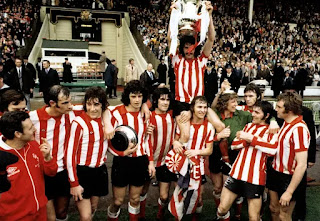






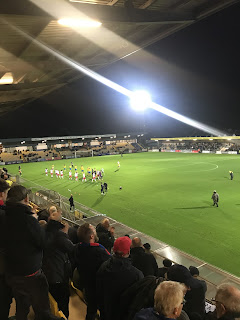



















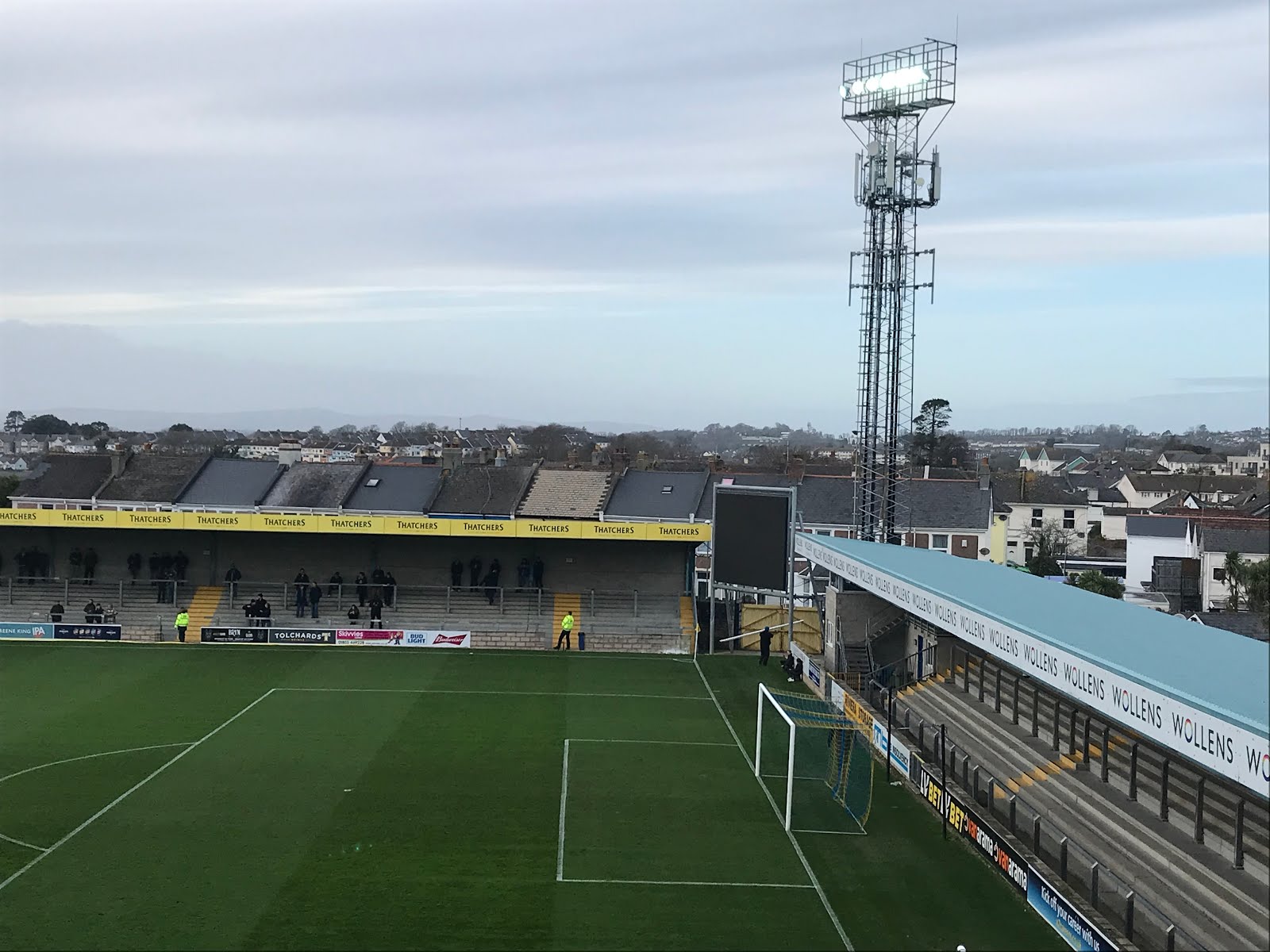











































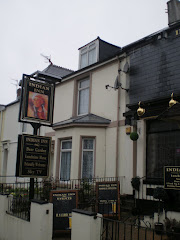


























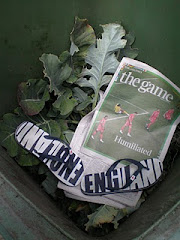







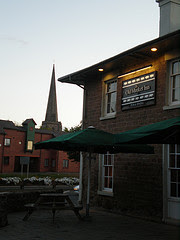










































































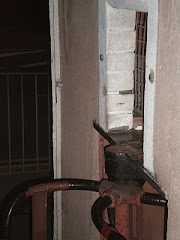
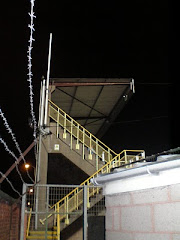

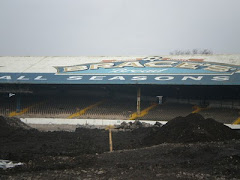




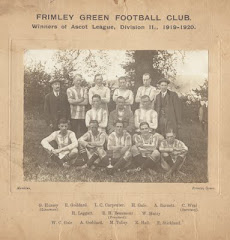
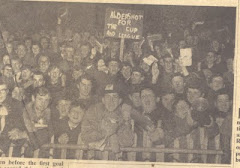
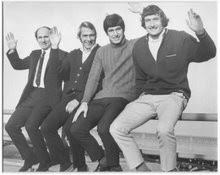

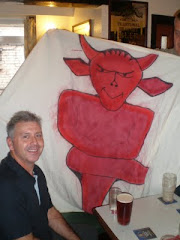
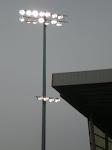


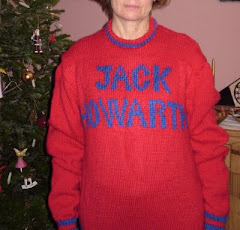















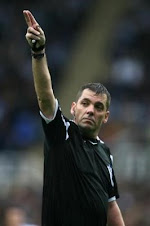
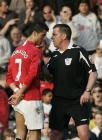







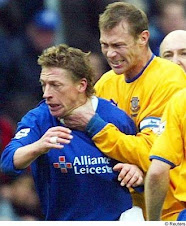



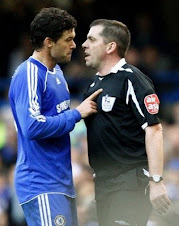









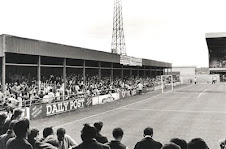


























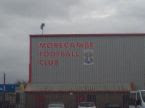



















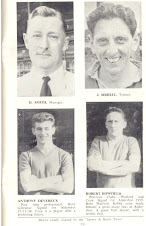
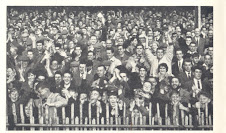

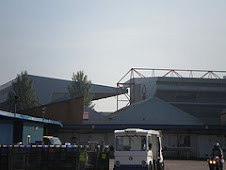
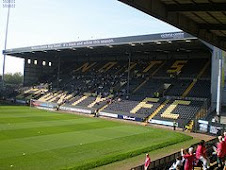





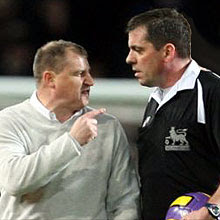








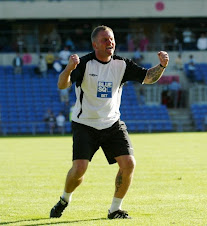






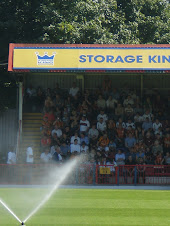

















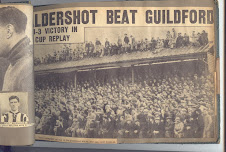



































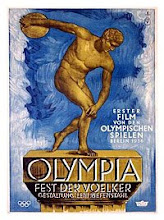

















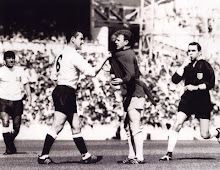








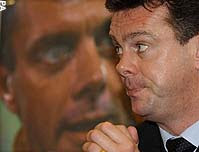






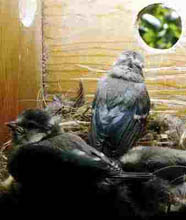








































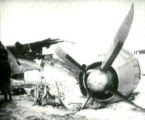








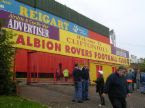

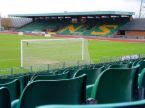

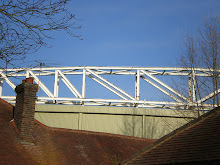
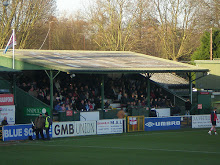
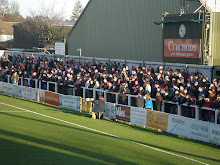
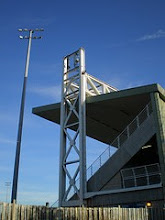





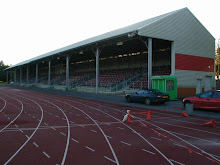







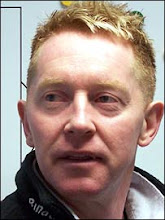





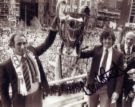











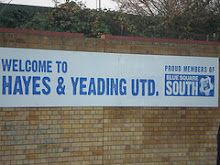
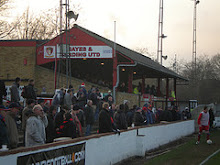
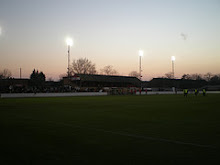




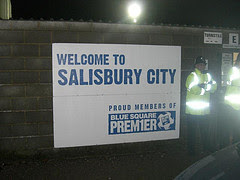
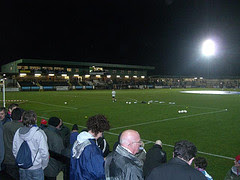
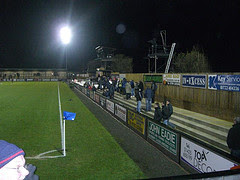


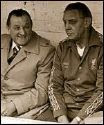

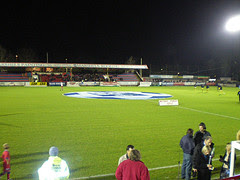
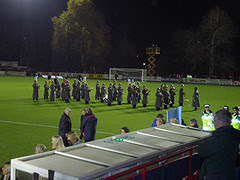



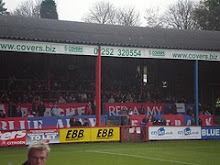












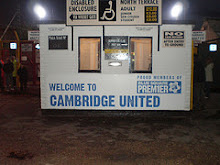
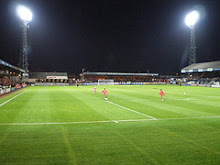
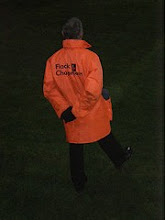





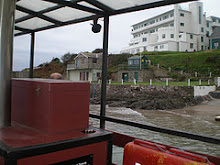
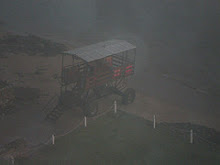
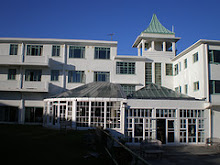


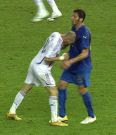













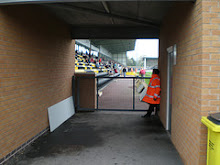
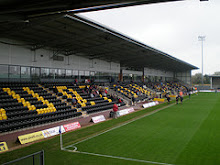

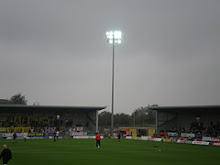






























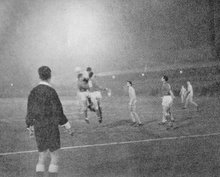

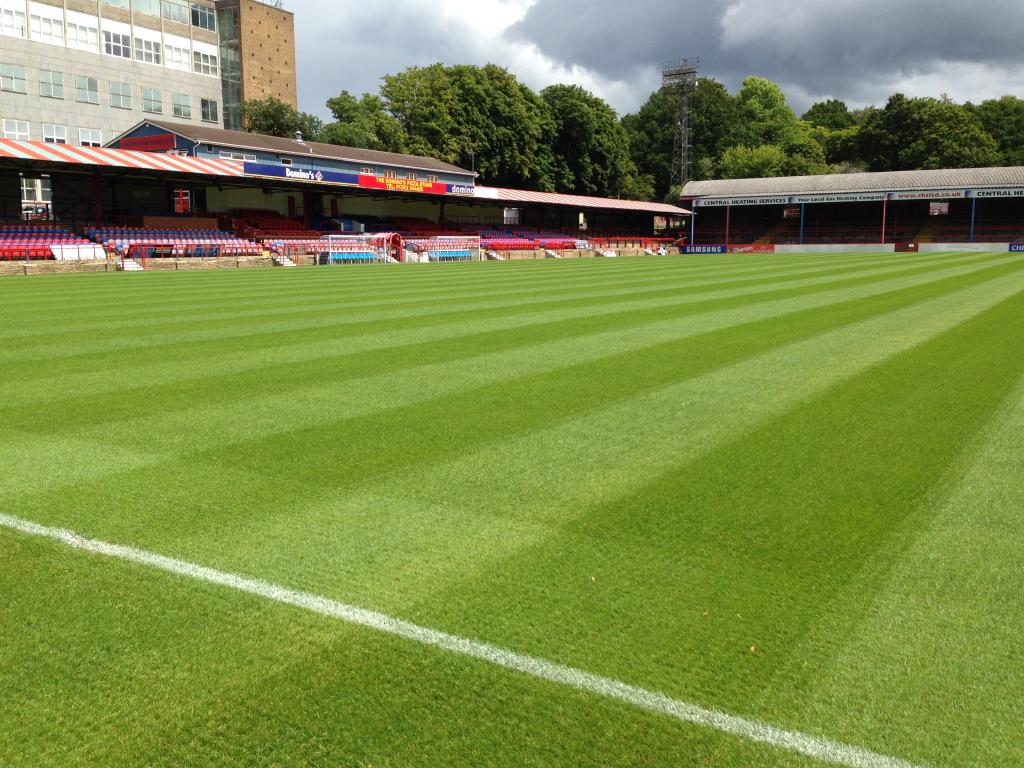

No comments:
Post a Comment